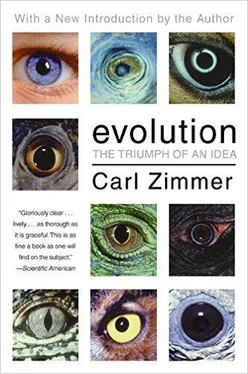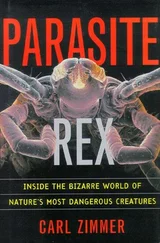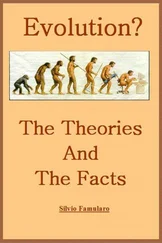In discussing the truth of evolution, we should make a distinction, as Darwin explicitly did, between the simple fact of evolution—defined as the genealogical connection among all earthly organisms, based on their descent from a common ancestor, and the history of any lineage as a process of descent with modification—and theories (like Darwinian natural selection) that have been proposed to explain the causes of evolutionary change.
Three broad categories of evidence best express the factuality of evolution. First, direct evidence of human observation, guided by an explicit theory since Darwin’s publication in 1859, but buttressed by data on longer periods of breeding for improved crop plants and domesticated animals, provides hundreds of exquisitely documented examples of the small-scale changes that our theories anticipate over such geologically brief periods of time. These include the familiar cases of changing pigmentation in moth wings as an adaptive response to substrates darkened by industrial soot, altered beak shapes in Galápagos species of Darwin’s finches as climates and food resources change, and the development of antibiotic resistance by numerous strains of bacteria. No one—not even among creationists—has denied this overwhelming weight of evidence in the small, but we also need proof that such minor changes can accumulate through geological time into the substantial novelties that build the history of life’s expanding diversity.
We must therefore turn to a second category of direct evidence from transitional stages of major alterations found in the fossil record. A common claim, stated often enough to merit the label of “urban legend,” holds that no such transitional forms exist and that paleontologists, dogmatically committed to evolution, have either withheld this information from the public or have claimed that the fossil record is too imperfect to preserve the intermediates that must once have existed. In fact, although the fossil record is indeed spotty (a problem with nearly all historical documents, after all), the assiduous work of paleontologists has revealed numerous elegant examples of sequences of intermediary forms (not just single “in between” specimens) joining ancestors in proper temporal order to very different descendants—as in the evolution of whales from terrestrial mammalian ancestors through several intermediate stages, including Ambulocetus (literally, the walking whale), the evolution of birds from small running dinosaurs, of mammals from reptilian ancestors, and a threefold increase in brain size during the last 4 million years of human evolution.
Finally, a third major category of more indirect, but ubiquitous, evidence allows us to draw a clear inference of change from a different historical past by observing the quirks and imperfections, present in all modern organisms, that make no sense except as holdovers from an otherwise altered (that is, evolved) ancestral state—that is, except as products of evolution. This principle governs the analysis of all kinds of historical series, not just biological evolution. We can infer that an abandoned railroad line once linked a group of well-spaced and linearly ordered towns (that would have no other reason for such an alignment). We can also identify social change from a more rural past by the etymological evidence of many words now used in very different meanings in our modern industrial world (“broadcast” as a mode of planting by throwing out seeds by the handful; or “pecuniary” advantages, literally measured in cattle, from the Latin pecus, or cow). In the same manner, all organisms carry useless remnants of formerly functional structures that make no sense except as holdovers from different ancestral states—the tiny vestiges of leg bones, invisibly embedded in the skin of certain whales, or the nonfunctional nubs of pelvic bones in some snakes, surviving as vestiges of ancestors with legs.
Evolution as not Generally Known or Acknowledged
No scientific revolution can match Darwin’s discovery in degree of upset to our previous comforts and certainties. In the only conceivable challenge, Copernicus and Galileo moved our cosmic location from the center of the universe to a small and peripheral body circling a central sun. But this cosmic reorganization only fractured our concept of real estate; Darwinian evolution, on the other (and deeper) hand, revolutionized our view of our own meaning and essence (insofar as science can address such questions at all): Who are we? How did we get here? How are we related to other creatures, and in what manner?
Evolution substituted a naturalistic explanation of cold comfort for our former conviction that a benevolent deity fashioned us directly in his own image, to have dominion over the entire earth and all other creatures—and that all but the first five days of earthly history have been graced by our ruling presence. In evolutionary terms, however, humans represent but one tiny twig on an enormous and luxuriantly branching tree of life, with all twigs interconnected by descent, and the entire tree growing (so far as science can tell) by a natural and lawlike process. Moreover, the unique and minuscule twig of Homo sapiens emerged in a geological yesterday, and has flourished for only an eyeblink of cosmic immensity (about 100,000 years for our species and only 6-8 million years for our entire lineage since our branchlet split from the node of our closest living relative, the chimpanzee. By contrast, the oldest bacterial fossils on Earth arose 3,600 million years ago).
We might mitigate the challenge of these basic facts if we could espouse a theory of evolutionary change that remained congenial to our old comforts about human necessity and inherent superiority—as in the common misconception that evolution implies predictable and progressive pathways of change, and that human origins (however belated) may therefore be viewed as both inevitable and culminating. But our best understanding of how evolution operates—that is, our preferred theory for the mechanism of evolutionary change (ascontrasted with the simple factuality of evolution, discussed in the last section)—does not even grant us this ideological comfort. For our favored and well-attested theory, Darwinian natural selection, offers no solace or support for these traditional hopes about human necessity or cosmic importance.
Hence, when I ask myself why evolution, although true by our strongest scientific confidence, has not become generally known or acknowledged in the United States—that is, nearly 150 years after Darwin’s publication, and in the most technologically advanced nation on earth—I can only conclude that our misunderstanding of the broader implications of Darwinism, in particular our misreading of his doctrine as doleful, or as subversive to our spiritual hopes and needs, rather than as ethically neutral and intellectually exhilarating, has impeded public acceptance of our best documented biological generality. Hence, I treat the meaning of Darwinism, or the implications of evolutionary theory (rather than the mere understanding of evolution’s factuality), as my major theme in trying to explicate why such an evident fact has not become generally known.
Public difficulty in grasping the Darwinian theory of natural selection cannot be attributed to any conceptual complexity—for no great theory ever boasted such a simple structure of three undeniable facts and an almost syllogistic inference therefrom. (In a famous, and true, anecdote, Thomas Henry Huxley, after reading Origin of Species, could only say of natural selection: “How extremely stupid not to have thought of that myself.”) First, that all organisms produce more offspring than can possibly survive; second, that all organisms within a species vary, one from the other; third, that at least some of this variation is inherited by offspring. From these three facts, we infer the principle of natural selection: since only some offspring can survive, on average the survivors will be those variants that, by good fortune, are better adapted to changing local environments. Since these offspring will inherit the favorable variations of their parents, organisms of the next generation will, on average, become better adapted to local conditions.
Читать дальше












